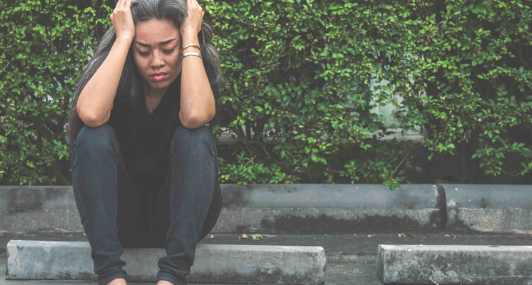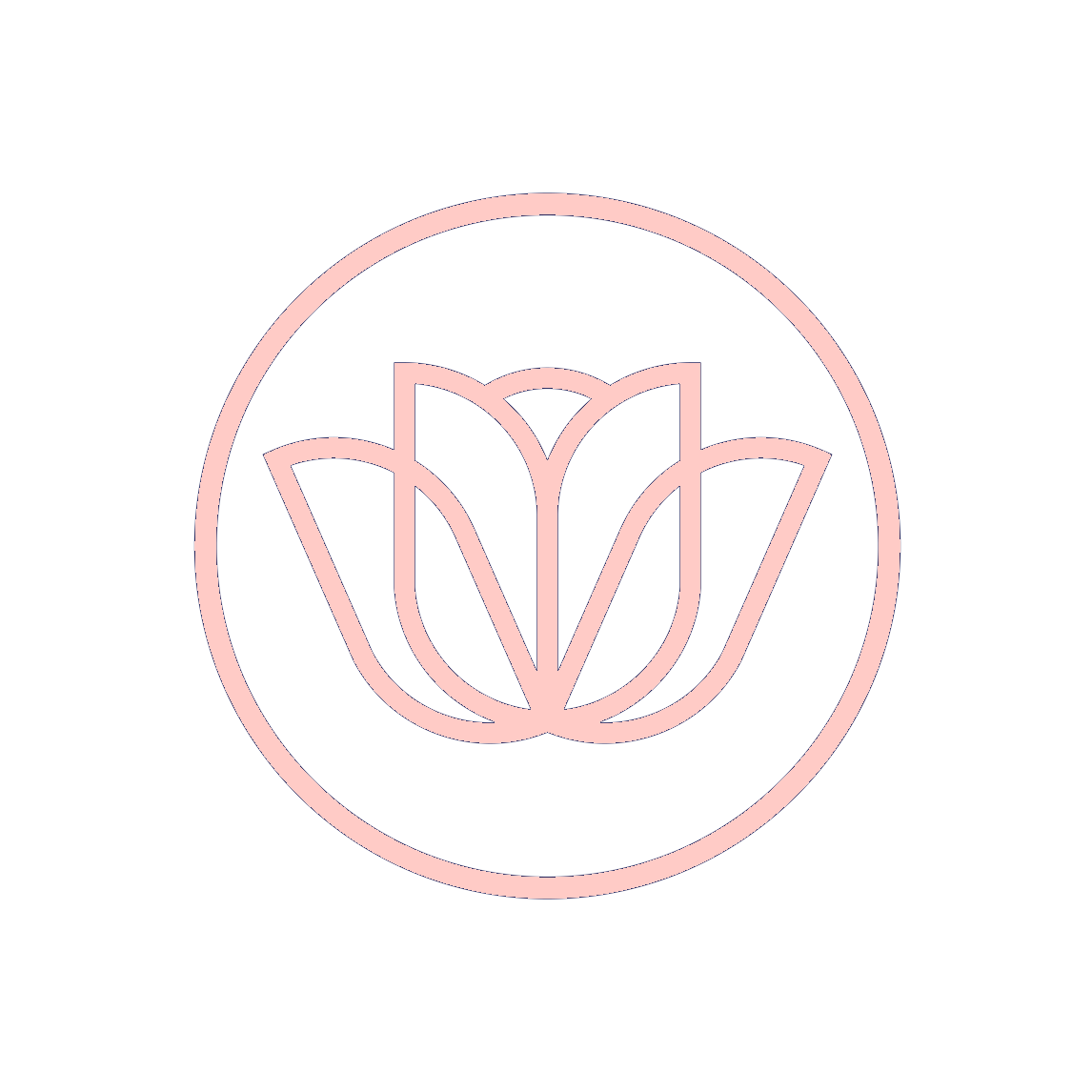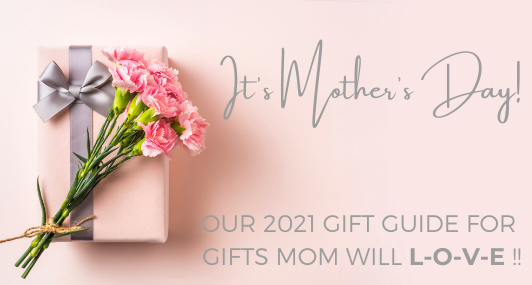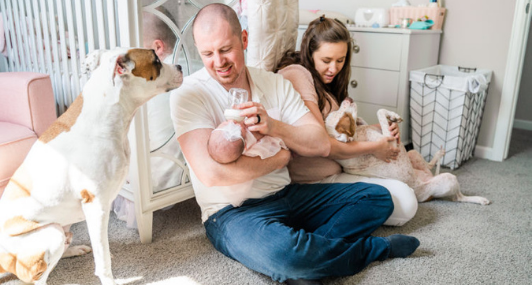
Does Stress Affect Beauty? The Latest News
Does Stress Affect Beauty? Here's the Latest News
by Susie Kuse
Susie’s note: Today I’m bringing you excerpts from Rachel Brown’s Beneath the Surface article from Beauty Independent.
I’ve always said that if the eyes are the window to your soul, the skin is the window to your health. And science is proving my theory to be right!
I think Rachel did a great job reporting on how stress affects the skin, and how the beauty industry is responding to it. I'm so excited to hear there has been a scientific study conducted on the link between beauty and stress. And finding that women feel less attractive when stressed. We all know this. Don’t you agree?
In 2002, I opened a spa. For years, I’d been stressed out from high-pressure sales positions in corporate America. I lived with cystic acne. Directly attributable to my stress levels. I had the world’s largest collection of sleeveless turtlenecks, because I wore turtlenecks all year long to hide the mountains under my skin along my jawline and neck.
I wanted a little jewel-box of a spa, where you could come to relax and treat your skin. Walk out happier, healthier and more confident.
My family is Eastern European (Hungarian and Czechoslovakian). I was raised with the idea that wellness and beauty go hand-in-hand. But neither one just happens. You have to work on your wellness. Stress relief is a big part of that. And you have to work on your beauty. That’s where regular skincare comes in.
At Indie Beauty Market, we don’t carry the brands mentioned in this article from Rachel. But we do carry beautiful, effective, high-quality indie beauty brands that really help to combat the effects of stress on your skin.
Before We Get to Rachel, Here Are 5 Stress-Relievers You Might Like to Try From Indie Beauty Market
1. Explore the Makanai Pure Beauty Daily Rituals - are you a Minimalist, Ritualist or Enthusiast? Makanai has a ritual for you. Japanese women treat and enjoy skincare rituals as something spiritual and peaceful. They are not only about streamlined steps. Makanai’s founder, Mayumi Tachikawa, says,” When we take care of our skin, it calms our mind and heart.” We couldn’t agree more!
Makanai Beauty products are luxurious to use and highly effective. My friend Rhonda says, "This is the ultimate luxury experience. Now I understand why Japanese women take their time in pampering and loving on themselves. It's, you know, a true investment in yourself."
2. Take a bath with Carter + Jane’s The Everything Bath, followed by their Oil Butter. This Bath & Butter Bundle is on sale! I believe in bathing so much that I had a 140 gallon, 2 person tub in my spa. It was total relaxation! We lit candles and threw rose petals around the deck. It was an overflow tub with air bubbles coming from the bottom. So you could fully submerge as much as you like.
At home, you can use this combination of The Everything Bath in Spa Retreat scent, followed by any of the Oil Butters. You’ll finish your day relaxed and your skin will be super soft and silky.
3. Transport yourself to Hawaii with O’o Hawaii’s Aloha Bliss Trio. It’s also on sale! Scrub away your stress (gently!) with Birdseed Detoxifying Face Scrub. Nourish your skin with Golden Nectar Brightening + Firming Ferulic Serum. The sandalwood and bergamot scent is heavenly. Then hydrate and firm with Brilliant Feather Beauty Balm.
O’o Hawaii uses beautiful, highly functional, superfood-level ingredients, for anti-aging results in just 3 days. Like all our brands, they address the symptoms of stressed skin. Premature aging. Adult acne. Dullness. Dehydration. And irritation.
4. Return to your youth. Christy Hall, owner of Mikel Kristi Skincare from Tucson Arizona, says, “Great skincare should be all about restoring skin function to as close as possible to what it was in childhood.” In other words, healthy and strong. And not stressed.
Mikel Kristi’s plant-based and clinically validated products prove that if you can have gorgeous skin living in the desert, you can have it anywhere on earth.
Christy says your skincare regimen should address four basic skin needs. Cleansing. Exfoliation of dead skin cells to increase natural moisture. Restoration of your collagen layer. And protection from environmental and personal stressors.
The Wake Up Your Skin Set is a great way to start this. Refreshing Botanical Wash cleanses and exfoliates, and C-Radiance Moisturizer nurtures and helps to fortify your skin, increasing its resilience.
5. Reduce stress from the inside. “Adaptogens” are a collection of non-toxic mushrooms and super-herbs. They help your body fight the negative effects of the stress hormone cortisol. You’ll see, in Rachel’s article, that cortisol can break down skin’s structure and prevent it from healing. Adaptogens also nourish your adrenal glands, helping to calm your body.
Our adaptogenic blends come from Wildcrafted Collection. It’s the brain-child of Olivia Esquevel, mother and entrepreneur, passionate about a holistic lifestyle that can change your life for the better. The blends - Beauty, Brain, and Energy - will help you get balanced, focused, centered and energized.
Now, I hope you love this article as much as I do! It’s jam-packed with great information on stress, how it affects your skin, and how the Beauty Industry is beginning to think about it. Enjoy!
Curated Content: The Big Beauty Industry Potential Of Modern Society’s Stress Dilemma
By Rachel Brown
June 2, 2021
As the co-founder and president of early beauty e-tailer Gloss.com during the tech-bubble heyday of the late 1990s, Sarah Kugelman’s career was on the upswing, but the tech euphoria soon soured into disillusionment and Gloss.com, which was scooped up by Estée Lauder in 2000, wouldn’t go on to realize the bold ambitions Kugelman had for it.
The extraordinary highs and lows of her Gloss.com ride put considerable pressure on Kugelman, who was wiped out physically and emotionally, and went searching for remedies to the stress that had taken hold of her initially in the fitness and diet arenas and, then, in beauty. “I became interested in how it related to beauty because that was what I was doing. At the time, skincare was dancing around stress,” she says. “There were brands like Aveda and Origins talking about natural ingredients, but not really about lifestyle and holistically what was going on in the whole body.”
Kugelman dove into researching stress to decode the relationship between stress and skin. She learned cortisol, the primary stress hormone, can break down skin structure and inhibit the skin from healing, and histamine, a chemical the stressed bodies release, can stoke rosacea. Ultimately, she identified five symptoms of stressed skin: accelerated aging, adult acne, dullness, dehydration and irritation. She launched the brand Skyn Iceland in 2005 with a collection of six topical products packed with antioxidants and adaptogens to address the symptoms, and an oral spray with L-theanine, an amino acid known to decrease anxiety.
At the inception of the brand, consumers didn’t grasp the concept. “People were like, ‘I get that I’m stressed, and I get that my skin doesn’t look good, but I don’t know how they are connected,’” says Kugelman. “Somewhere between seven to 10 years later, people started to really get it. It became pervasive in the conservations we were having. I think that’s because of cellphones and social media. There were so many things that were stressing people out all the time, it became a bigger subject people were interested in.”
The subject has certainly caught on in the beauty and wellness industries, partially because they’re increasingly interconnected. Peace, calm and relaxation are contending with brightening, firming and wrinkle reduction in the pantheon of results beauty products pledge to deliver.
Whether applied or ingested, formulas are being designed to combat stress or the repercussions of it. Self-care has morphed from an indulgent escape to a therapeutic session.
“If the consumer doesn’t feel good on the inside, they aren’t going to look good on the outside.”
“Stress is the next frontier. It used to be clean,” says Jessica Assaf, co-founder and chief education officer of Prima, a CBD beauty and wellness brand with the tagline, “the science of stress relief.” She continues, “If the consumer doesn’t feel good on the inside, they aren’t going to look good on the outside. The categories are getting all blurry. Beauty brands can do food. Supplement brands can do skincare. There’s a blurriness that’s happening that gives brands more opportunity and space than ever to experiment.”
Kat Bryce, co-founder and global brand VP of Loum Beauty, a skincare brand in the portfolio of the incubator Present Life with the motto, “discover the science of calm,” and products formulated to combat the effects of stress on the skin, describes the market potential of beauty products confronting the damage wrought by stress as “enormous.” “Stress isn’t another category in skincare,” she says. “Stress and stress hormones are underpinning all of the skin problems we are concerned about.” (I added the bold - this is so important!)
In the ingestible segment, Barton Warner, CEO and co-founder of stress management supplement brand R3set, envisions enormous potential as well. He highlights data showing that, after general health, stress and sleep are the two leading motivators for why consumers under 50 years old turn to supplements. “When you look at the category of stress management products, it’s tiny,” says Warner. “There’s a big difference between what consumers are saying they are looking for and what the market is providing them. That’s why I think there will be so much growth over the next period. ...”
“Stress is the next frontier. It used to be clean.”
Interest in stress-related products is prevalent because stress is incredibly prevalent. According to The American Institute of Stress, stress is defined as “physical, emotional and mental strain or tension.” In data collected by the organization in 2014, around three-quarters of Americans reported they regularly experience physical and psychological manifestations of stress, and one quarter of Americans reported they live with extreme stress. Money, work, crime, violence, political and personal issues, and worries about the future are major causes of stress.
Not surprisingly, the pandemic exacerbated stress. Last year, the American Psychological Association’s annual survey on stress conducted by The Harris Poll revealed nearly 80% of Americans reported the pandemic was a significant source of stress, and nearly 70% reported heightened stress over the course of the pandemic. With the publication of the survey, the APA sounded the alarm about what prolonged elevated stress was doing to Americans’ mental health. It proclaimed, “We are facing a national mental health crisis that could yield serious health and social consequences for years to come.” ...
In concert with Columbia University neuropsychologist Sanam Hafeez, Loum Beauty conducted a study of women aged 18 to 55 drawing links between beauty and stress. The first-of-its-kind study found 63% spend less time on self-care and 61% feel less attractive when stressed while 75% agree that feeling bad affects their sense of feeling beautiful.
The younger women in the study were hit by stress harder. Seven in ten of them said they feel less attractive when stressed. “At every stage of their lives, calmness helps women feel more beautiful and confident,” emphasizes Loum Beauty in the paper on its study.
If there’s good news on the stress front...
...it’s that members of gen Z who range in age from 9 years old to 24 years old talk about stress openly in manners previous generations didn’t. Not only do they talk about it openly, Hana Ben-Shabat, founder of consumer insights firm Gen Z Planet, says they seek assistance for it and welcome brands jumping into the discussion about stress with them. She points out, “They are very happy to hear about what solutions could be there for them.”
The focus on stress in the beauty industry comes as beauty trends are being dictated by consumers rather than executives in boardrooms. While the beauty industry may have historically been an instigator of stress with its rigid beauty standards that most people can’t conform to, it’s striving to move away from that rigidity to resonate with broader swaths of consumers, especially younger consumers.
“We used to be aspirational and out of touch. Now, brands want to level with consumers, and they want to be part of their conversation and not above them,” says Assaf. “Gen Z is really taking a stand to say, ‘We are not going to buy the $200 night cream from you just to make us look good. We would love you to understand where we are coming from.’ The conversation we were having 10 to 20 years ago is outdated. It’s really about brands that are positioned to create a life philosophy and way of life for consumers.”
That way of life can be fostered via products, content and practices—and brands are shaping all three to counter consumers’ stress. Product application rituals and meditation protocols are meant to enhance mindfulness along with personal maintenance. Loum Beauty partnered with Reiki master and holistic aesthetician Julie Civello Polier to devise two-minute meditations to pair with its products. Even music hit maker DJ Khaled dispensed a guided meditation series to go with his new CBD grooming brand Blesswell.
“Stress and stress hormones are underpinning all of the skin problems we are concerned about.”
Beauty and wellness brands are developing products filled with ingredients intended to battle stress and the impacts of stress. Loum Beauty incorporates marine microalgae it promotes as diminishing stress-induced inflammation. Malini Amin, VP of business strategy at natural fragrance manufacturer Custom Essence, singles out tried-and-true essential oils such as chamomile and lavender as containing soothing properties suited to stress-busting products. She says, “Brands can tap into these mood-boosting benefits by carefully choosing the right fragrance to help elevate a destress claim.” R3set’s supplements, which are wrapped in essentials oils for comforting aromatherapy purposes, feature ingredients including valerian root, GABA and ashwagandha for stress regulation.
Since the federal Farm Bill was signed into law in the United States in 2018 and legalized the hemp trade, CBD may be the most prominent over-the-counter de-stressor on the market. Josh Kirby, chief product officer at Kin Slips, a brand selling sublingual products with the cannabinoids CBD, CBN and THC, comments the top reasons for cannabis use are almost completely associated with stress. He says, “A cannabis product can’t stop your boss from being overbearing, but you can utilize certain products to improve certain aspects of yourself to prevent stress from being such a trigger.”
With or without CBD, supplements and beauty products vow to offer stress relief without extensive commitment, a key component of their allure. One of R3set’s core consumer groups consists of busy moms who are unable to squeeze exercise, healthy cooking, meditation and therapy into their loaded schedules. Warner says, “We definitely educate consumers about other things they can do beyond taking supplements, but they like the fact that there is a very simple thing they can do to care for their stress.”
Consumers also dabble in stress-fighting OTC products to steer clear of pharmaceutical treatments. As a nurse before launching the brand La Parea Wellness five years ago, Samanta Moise saw clearly that stress was sickening people, but Western medicine wasn’t always equipped with proper answers for it. Assaf supplies an estimate that 75% to 90% of doctor visits in the U.S. are tied to stress, and Loum Beauty figures 35% of dermatology consultations are affiliated with mental health qualms, predominantly stress.
In addition to her stress-addled patients getting sick, Moise struggled with migraines that could be brought on by stress. “I tried a lot of medications, but, once I started down the holistic route, which was yoga, meditation and aromatherapy, it helped a lot,” she says. ...
As consumers discuss stress and sift through information about it, they may begin to decipher the multitude of forms it takes and gravitate to specialized products. Brands are already getting more sophisticated about stress. Loum Beauty’s Bryce foresees a surge in haircare products that tend to the effects of stress on the hair and scalp. Kugelman imagines at-home tests that measure stress hormones, and brands tailoring products to test findings. At Prima, Assaf is intrigued by the possibility of delineating various stressors, from social media to environmental pollution, and forging solutions for them from a product and content perspective.
“I would love the next generation of women to think, when they have a skin issue going on, where can I eliminate some of the stressors in my life as opposed to what is the most powerful skincare product I can put on my blemish?” she says, continuing, “One of the stressors that plagues us every day is the constant scroll of Instagram. So, you see wellness brands saying, ‘Yes, we have to be on social media,’ but, every once and a while, we put out a post that says, ‘Reminder, stop the scroll. Go out into nature.’ It’s about understanding that you can go outside of normal brand marketing to give consumers that out. That’s a brand acknowledging stress, and brands are doing this more and more.”
Assaf concludes, “We are trying to normalize stress. Nothing is wrong with you. We are all dealing with this, and here are products that you can get without going to the doctor.” With its products, Prima asserts “a less stressed-out you awaits.”
To read Rachel Brown’s entire article in Beauty Independent, click here.
Susie Kuse is Passionate About Great Skin and Co-Founder of Indie Beauty Market. She has been in the spa and beauty industry since 2002. She loves to help people understand that a little daily self-care goes a long way toward great skin, health, beauty and happiness. And it’s important to keep your products safe, effective, healthy, clean, sustainable and ethical.












Leave a comment
This site is protected by hCaptcha and the hCaptcha Privacy Policy and Terms of Service apply.